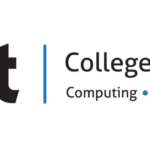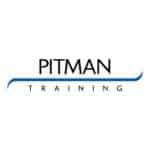Computer savvy is a necessary skill for most jobs in Ireland. You’ll find computers across all industries, from accountancy to zoology and beyond. Professions that have existed for thousands of years, such as farming, now use computers to track stocks, supplies and manage records. The geeks have inherited the earth and if you can’t beat them, join them!
If you are unfamiliar with computers, you may feel out of your depth, both at work and at home. Most Irish homes are connected to the Internet. It’s no surprise why. You can get the latest news, shop, and watch films and TV shows online. In 2011, the United Nations declared access that access to the Internet was a human right.
Computers aren’t going anywhere. Microsoft`s Bill Gates believes that computers have become the most empowering tool we’ve ever created. The American inventor Douglas Engelbart argued that the digital revolution is far more significant than the invention of writing or even of printing.
You don`t have to be a genius to know your way around a computer. Computers have more functions than ever before, but they are also a whole lot easier to use. Best of all, they allow you to do more. You can create and share videos, find cheap flights, pay your bills, write a programme, compose a song or run a business from your bedroom.
If you are looking to learn the basics, upskill, or change direction completely, there is a computer course for you. There`s a lot to choose from. Here’s a rundown of some of the courses on offer across Ireland.
Beginners Courses
If you have never written an email or installed a programme, getting to grips with computers may seem a daunting task, but help is at hand. There are beginners courses that will teach you the basics, including keyboard skills, word processing, and how to use the Internet and email.
If you need a course with more depth, particularly if you are returning to the workforce, the European Computer Driving License (ECDL) is the answer. This is a computer literacy course designed by the European Commission, and it is generally regarded as the workplace standard. The course covers word processing, databases and spreadsheets all of which are essential for most industries. If you have your ECDL and want advanced training, there are courses on popular workplace programmes, such as Microsoft Office.
Design & Digital Media Courses
Spreadsheets aren’t for everyone. Luckily, computers have given artistic people more outlets to express themselves and get paid for doing so. No starving in a garret required!
If you have creative flair, you could consider a course such as graphic design, web design, animation or games development or perhaps all of them! While these work as standalone courses, the skills you`ll learn in each are complementary.
If you want to learn a new skill you could consider a short course on Adobe Photoshop or the web design programme, Dreamweaver.
A short course does not mean are you`re getting the short shrift. Dreamweaver will teach you how to create a website. This is perfect if you want to run your own website. If you want to work as a web designer, a course like this will give you a great grounding. Photoshop is an industry-standard programme used by photographers, digital artists and graphic designers.
Social Media & Digital Marketing Courses
Social media and digital marketing is a growing industry. This is because it is cheaper, and often more effective than traditional marketing and advertising. Social media marketing is a specialist skill, but some knowledge in this area is useful for a variety of jobs.
If you come from a marketing background, or run your own business, social media expertise is a huge plus. Using social media such as Facebook and Twitter to promote a business effectively is more complicated than simply posting on these platforms. Getting people to interact with your brand and talk about it is key to reaching the widest possible audience.
Web designers, bloggers, journalists and business managers all need an understanding of search engine optimisation, aka SEO. SEO helps to improve your website’s Google ranking and visibility. This, in turn, translates into clicks, sales and profitability.
Computer Specialist Courses
The employment market ebbs and flows, but computer programmers and information technology (IT) specialists are always needed. For many years, demand has outstripped supply. As a result, competent programmers are inundated with offers of jobs. If you are thinking of upskilling, re-training or changing direction completely, a career in computers may be right for you.
Computing has become increasingly diversified. This means there is not necessarily one course you should do. If you`re a novice, a computer programming course will cover the basics. From there you can move on to advanced courses in programming languages such as Java or SQL, software development, business information systems or cloud computing.
Computer specialists are not all keyboard jockeys furiously writing new programmes. Experts in maintaining networks and servers, as well as IT support and IT security, are all highly sought after as well. Many of these courses are attended by people already working in the computer industry so that they can stay abreast of new developments and offer employers a range of skills.
Given the vast amount of options available, we suggest you spend some time choosing your course. You should also consider whether professional training or a short introductory course is the best first step for you. Part-time courses are one of the smartest ways to improve your employability, but finding the right fit is crucial to your success.














